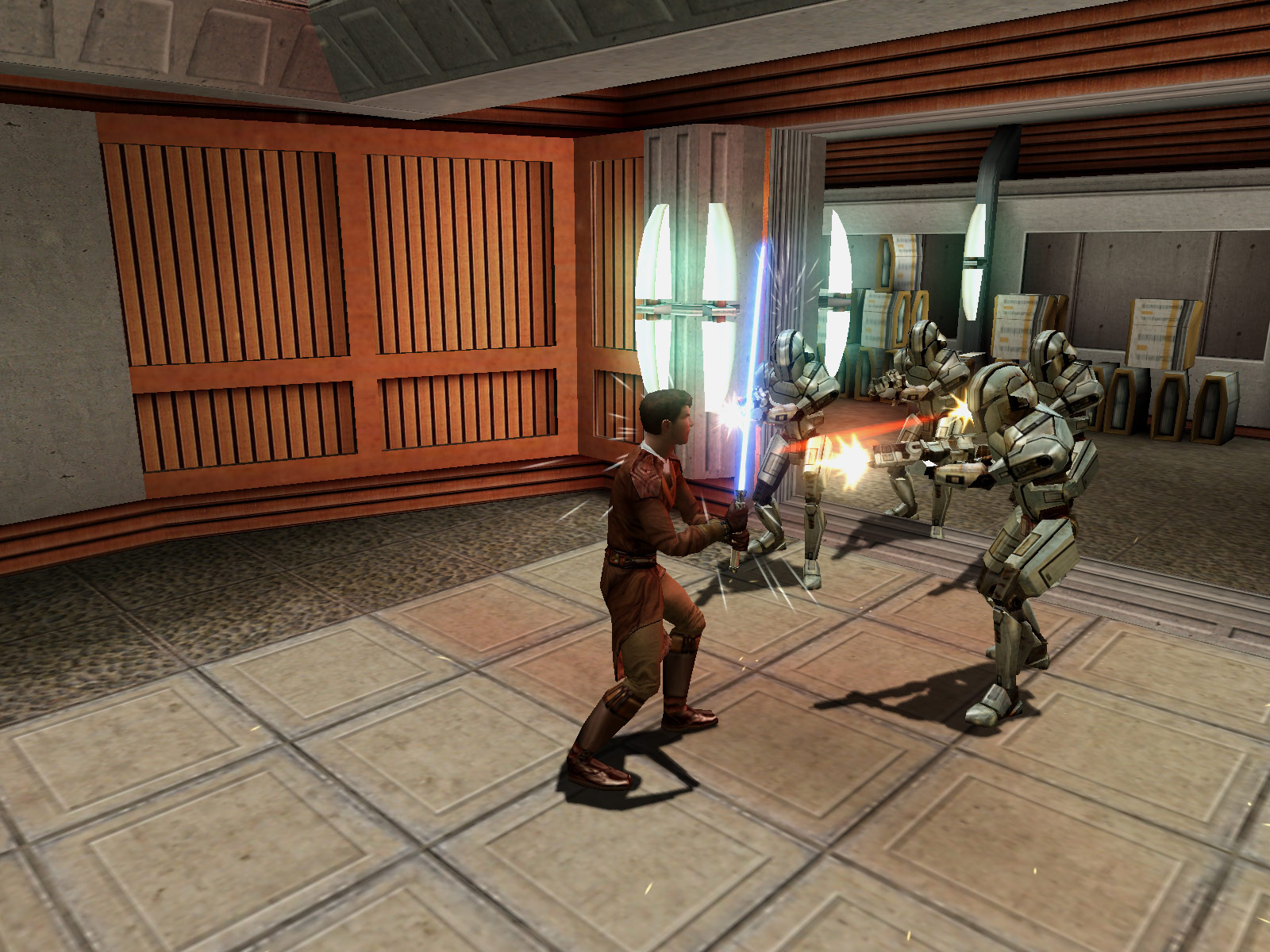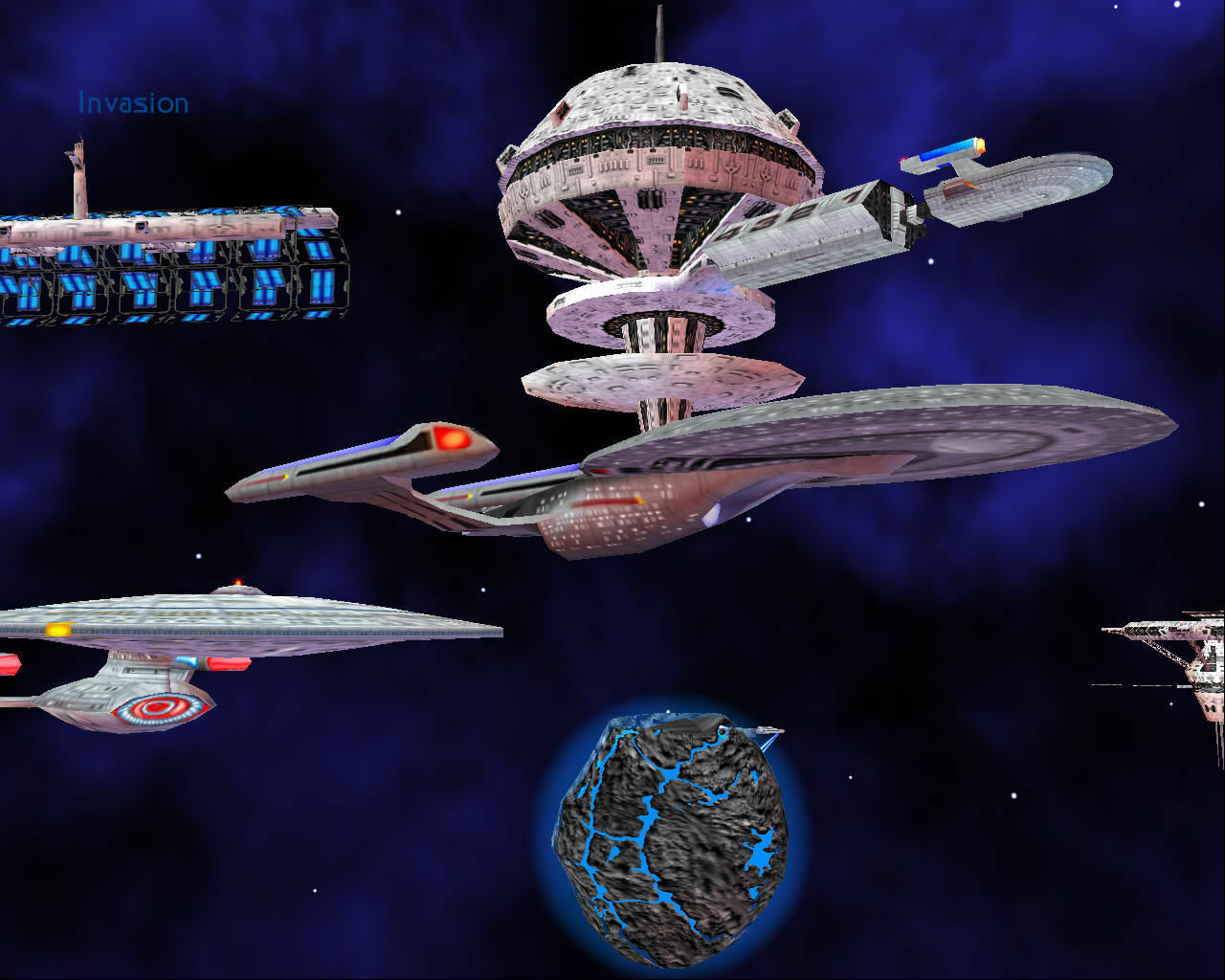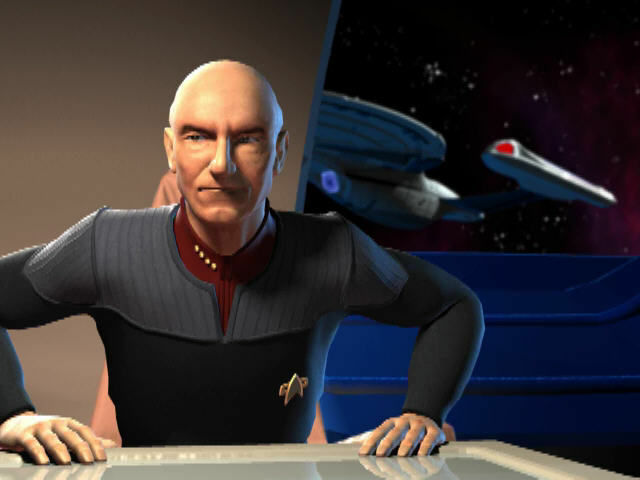Star Wars vs. Star Trek: What should you play this weekend?
Star Wars or Star Trek? Just like the franchises themselves, the age-old battle of the fandoms never seems to die. The two “Star” franchises have been at odds for close to half-a-century.
Welcome! This column is part of a regular series in which we share what members of the Tom’s Guide staff are playing and enjoying right now, with an eye towards helping you find great games that you may have missed. Be sure to check out our last entry, where we talk about why you should check out Horizon Zero Dawn.
This weekend, the fierce sci-fi rivalry hits Tom’s Guide, with some classic Wars and Trek video game action. Automotive Editor Tom Pritchard is going back to a galaxy far far away, with a brand new playthrough of Star Wars: Knights of the Old Republic. Meanwhile, Senior Editor Marshall Honorof will be sinking his teeth into Star Trek: Armada II’s real-time space combat.
Those games could not be more different, just like their parent franchises, and our two editors have extremely different reasons for playing them. In a world of never-ending “Star” skirmishes, which one one of the games sounds more appealing to you?
Star Wars: Knights of the Old Republic

This weekend, two things are definitely happening in my house. The first is that my girlfriend is going to be watching the Eurovision Song Contest, all three-and-a-half hours of it. Meanwhile, I will be hiding somewhere upstairs, finally getting around to replaying Star Wars: Knights of the Old Republic on the Xbox.
Despite the fact that I do like Star Trek (more than most people lately, judging from online discourse), the franchise’s video games have never appealed to me. The idea of Star Trek: Bridge Crew, played in VR, has tempted me, but I never actually picked up a copy. My dislike of the PlayStation move controllers, and the fact I don’t have a great VR headset, are squarely to blame for that.
KOTOR has open worlds, lightsabers, space battles, a nefarious villain, a galaxy-dominating superweapon and a plot that will make you go “oh s***!” on more than one occasion.
Star Wars, on the other hand, has always been a different story. The franchise generally has a lot more mainstream appeal than Trek, and that’s reflected in the kinds of video games that have come out over the years. I played several different Star Wars games throughout my teenage years, back when video games were more of a luxury purchase than they are now.
More to the point, there seemed to be a lot more variety among the titles. We had third-person action games, such as Obi-Wan and The Force Unleashed; space combat from the Starfighter series; and first-person titles, such as Battlefront and Republic Commando. Not only was there a large amount of diversity, but the games were also easy to find in stores.
Thinking about Star Trek games from the same period, my mind generally draws a blank. I remember seeing several of the more recent titles, including the much-derided 2013 Abrams-verse movie tie-in. But I can’t think of many Trek games before 2010. Despite my dad being something of a Trekkie, Star Wars games got all the exposure.
When you talk about Star Wars games, you can’t forget about KOTOR. BioWare’s RPG is generally considered the best of the bunch, even 19 years later. The combat system has not aged particularly well, but it has just about everything else you could want from a Star Wars game.
KOTOR has open worlds, lightsabers, space battles, a nefarious villain, a galaxy-dominating superweapon and a plot that will make you go “oh s***!” on more than one occasion. The best part is that, like any good Bioware RPG, there’s a lot of freedom to play the game your way. Most Star Wars games shoehorn you into a specific role, but KOTOR lets you choose to be good, evil or anything in-between.
It’s for all those reasons, plus the fact that a rebooted version is coming, that I went out to buy a used copy of KOTOR a few weeks back. I don’t remember a great deal about the game, beyond the broad strokes, but it’s about time for a refresher.
My only real challenge is figuring out how I should play the game. KOTOR works just fine on Xbox Series X, despite being almost 20 years old, but backwards compatibility and remote play don’t mix. With my living room TV otherwise occupied, I may have to set myself up with an older TV and Xbox console in my bedroom. — Tom Pritchard
Star Trek: Armada II

It’s no big secret that I’m not a huge fan of the new Star Trek shows. Modern Trek leans hard on spectacle and reference, and if the stories are half-baked retreads and the characters are lifeless caricatures, well, that’s just how things are now.
(Star Trek: Prodigy is surprisingly good, although that’s neither here nor there.)
After I choked down yet another bland episode of Discovery a few months back, I noticed that GOG was having one of its small, frequent sales, and Star Trek: Armada was one of the titles on offer. I’d always wanted to try this game, since it combines two of my favorite things: Star Trek and real-time strategy gameplay. I’d heard it was sort of a lesser cousin to StarCraft, which I could live with, and that the GOG version finally made the quirky game playable on Windows 10 and 11 machines.
Armada isn’t about bland new characters, incessant callbacks or constant crying. It’s about heroes and villains in a tense standoff, each one using their cunning and expertise to try to overcome an impossible situation.
The game lived up to its reputation as a thoroughly decent RTS romp that didn’t overstay its welcome. For longtime Trek fans, the story was also thoroughly entertaining. Capt. Jean-Luc Picard of the U.S.S. Enterprise-E encounters a time-traveling Starfleet captain, who warns him of an impending Borg invasion.
From there, Picard and Lt. Cmdr. Worf rally the Federation’s Klingon allies and attempt to forge a tenuous peace with the Romulans. Meanwhile, the Borg Collective revives Picard’s alter-ego, Locutus, and forges a path toward the heart of the Federation.
Armada has a more militaristic story than most Star Trek episodes, but it fits the game genre. There are also plenty of familiar characters here, including General Martok and Commander Sela, all played by their TV actor counterparts.
What I noticed most when I was playing the game, however, was that I was actually enjoying a Star Trek story again. Armada wasn’t about bland new characters, incessant callbacks or constant crying. It was about heroes and villains in a tense standoff, each one using their cunning and expertise to try to overcome an impossible situation. When I had the choice to watch another Discovery episode or start another Armada mission, I went with the latter every time.
This morning, I started Star Trek: Armada II, and I intend to sink some more time in over the weekend. Like the first game, it’s an RTS about familiar Star Trek characters and civilizations, all trying to hold off a deadly Borg invasion. There are some new additions, of course, including full three-dimensional combat (which makes sense, in space) and two new playable races: the Cardassian Union and Species 8472. And if it’s anything like the first game, I imagine it’ll be an easy recommendation for veteran Trek fans who want to remember why they love the setting in the first place.
To give KOTOR its due, it’s probably a better game than Armada overall. (Its sequel, Knights of the Old Republic II, is the best Star Wars game ever made, but that’s neither here nor there.) But I have to imagine that every Star Wars fan with a passing interest in RPGs has played KOTOR by now. Star Trek: Armada and Armada II, on the other hand, only showed up on GOG a few months ago. They’re not masterpieces, and they don’t need to be. Sometimes, immersing yourself in a favorite franchise is enough. — Marshall Honorof
Star Wars vs. Star Trek

As for the overall “Star Wars vs. Star Trek” question, fans have been arguing about it for the past 45 years, and they’re not likely to stop anytime soon. But it’s worth remembering that the two franchises do have some things in common. They’re both big adventures with iconic heroes and villains. They’re both about imagining the wonderful and terrible things we might encounter in the far reaches of space. And, at their core, they’re both extremely human stories about how we can become the best versions of ourselves, whether it’s by rejecting the dark side of the Force or joining up with Starfleet.
While I’ve found that Star Wars games are a little better on the whole, there was a run of surprisingly good Star Trek games between 1992 and 2003, and GOG has preserved quite a few of them. Let’s hope that developers, publishers and enthusiasts can work together to keep classic Star Wars and Star Trek games alive, so that we can finally have star peace.
For all the latest Technology News Click Here
For the latest news and updates, follow us on Google News.
